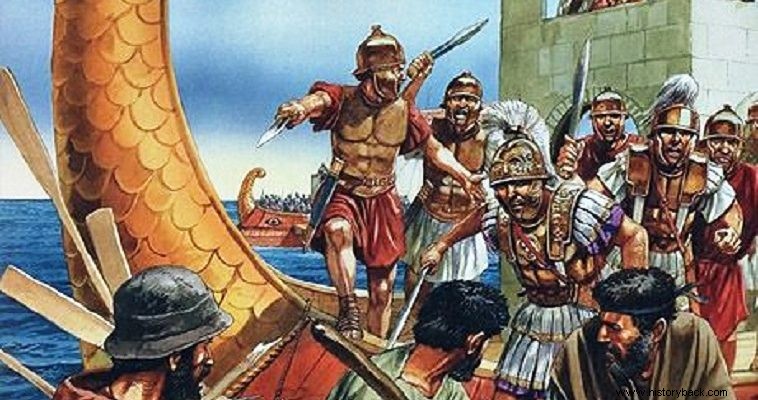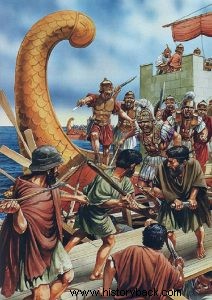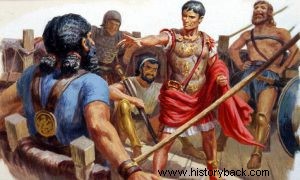
Gaius Julius Caesar was involved early in the public life of Rome. Belonging to the camp of Marius he risked being killed by Sulla in the first great civil war.
Caesar left Rome and participated in two campaigns in Lesvos and Cilicia. As soon as he was informed of Sulla's death (78 BC), Caesar returned to Rome. In order to make his presence felt in political matters, he took it upon himself to make accusations against the former governor of the province of Macedonia, Cornelios Dolavellas, who had literally weaned the Greeks, demanding the payment of huge sums.
The Greeks denounced his behavior and Caesar took up the defense of their rights. Although in the end he did not succeed in condemning Dolavellas, nevertheless his action worked positively and lightened the burdens of the Greeks. However, this move of his, according to a representative of the aristocracy, caused a new polemic against him.
So Caesar decided it would be better to leave Rome again. This time he would go to Rhodes to study with the famous Greek orator Apollonius Molos. While he was sailing, however, his ship was taken over by pirates, off the islet of Farmakousa (75 BC).
O The pirates did not bother him, aspiring to obtain a rich ransom. Plutarch states that for his release they demanded the enormous sum of 20 talents. He himself laughed and told them it was worth at least 50!
Caesar remained a prisoner of the pirates for 40 days. All this time, without showing the slightest fear, Caesar told them that as soon as he was freed he would make sure to crucify them all. The Cilician pirates laughed, considering the young Roman's words very foolish. Finally the ransom was delivered to the pirates and Caesar was freed. Immediately then he went to Miletus, roughly organized a flotilla and attacked the pirates.
He tortured them and crucified those he captured alive, just as he had told them! Who could accuse him of not keeping his word? Regarding this specific episode, however, the opinions of ancient historians differ. Suetonius states that Caesar was captured by pirates on his way to Rhodes, while Plutarch states that this happened when he was returning from Bithynia.

Clash of Romans and pirates.

Caesar and the pirates.
